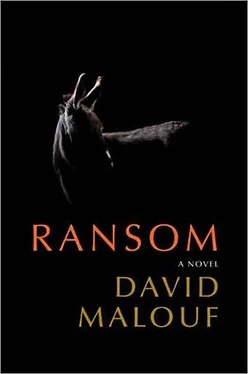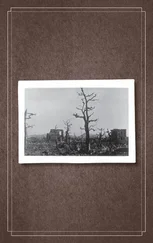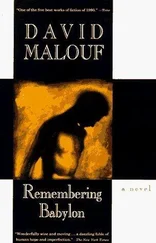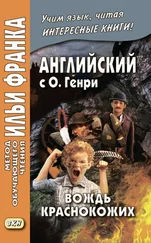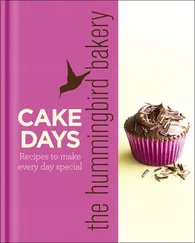But the question, when he put it, was awkward, and did not touch on what he really wanted to know. It was a way, simply, of getting the fellow to start up again.
‘So,’ Priam said, ‘you too have been blessed with sons.’
The man looked up.
‘Blessed, my lord?’ He shook his head. ‘Well, you could say that. Blessed and then unblessed. In fact, sir, all I have left to me now is the daughter-in-law and a little girl four years old — no, she’ll be four next month if the gods spare her — my granddaughter. To tell the truth, sir, just at the moment she’s a worry to me. If I’ve been a bit absent at times, and wrapped up in my own thoughts, it’s because I’ve been thinking of her, poor soul, as you do, sir, when they are all that’s left of your own blood. When I set out this morning she had a fever, and naturally I didn’t expect then to be away for so long. By this hour most days I’d be home. Not that I mean to complain. But a fever is a worry. It’s a terrible thing to see their little bodies all hot and tossing from side to side, and hear them gasping for breath. It seems like such a simple thing to a big strong fellow like me — a breath. You’d think you could just give it to them, free, even if it meant a little tightening in your own chest. It would be worth it, not to have the fear, the worry, you know, sir, of them being taken. But she’s a strong little thing, there is that. Full of noise and mischief. Loves to be swung up on your shoulders and round and round till you’re both dizzy. You should hear her scream. She’s certainly got the breath for that! In just a few days, I dare say, she’ll be running round the yard chasing the pigeons. But you worry just the same, it’s in our nature. We’re tied that way, all of us. Tied here,’ and he closed his fist and brought it to his chest to indicate the heart.
‘She fell once out in the yard, on a stake, and the blood that poured out you wouldn’t credit in such a tiny creature. So much of it, and so red! All running away so fast I thought we’d never stop it. Then it stopped, just like that all on its own, as if something in her had said, “Enough, if things go on like this it’ll be the end of me.” What creatures we are, eh, sir? With so much life and will, and then, pfff , it’s ended. Well, she opened her eyes, blinked at us, laughed, and for that time it was all over: just a good-sized scar that is still there on her forehead, you can’t miss it. But we’d got a real fright, I can tell you. I shook all over. I thought, “I can’t bear it, if anything happens to this little one, the last of my blood.” I don’t know what I’d have done if the gods hadn’t thought again and been kind to us. But the truth is, we don’t just lie down and die, do we, sir? We go on. For all our losses. But I’d’ve been walking around, strong as I am, with a broken heart. My heart would have broken — it’s near broke already. My wife, rest her spirit, gave me three sons and four daughters, and you know, sir, not one of them is still living.’
He sat with his shoulders slumped, shaking his head. ‘Two of the boys got to be full-grown. The others, poor things, died early, of this and that. Stomach cramps, fits, fevers. One of the girls was so sickly she couldn’t feed. It was lucky there was an older child, a boy, who could take the milk. My dear one’s breasts swelled up like melons. They ached something terrible, and she cried and cried with the pain of it, though some of it was grief as well for the little one that just lay like a baby sparrow with its mouth open, gasping. Starved she was, too weak even to suck on your finger with a drop of milk on it. So the boy took it.’
Once again he moved away into his own thoughts and sat brooding. ‘I can see him now. Such a lively little fellow. Laughing and wiping the milk from his mouth. He was too young, sir, to understand what it cost the other. He grew up all the stronger for it, but it’s terrible to think of that little one’s ghost out there, still wailing and unfed.
But there it is! The one was lost, the other prospered, grew up strong as a bull. There was no other fellow in the whole district hereabouts who could match him for wrestling, or hurling a log, or carrying a couple of sheafs on his back. The strength he had in his shoulders! The thickness of him! Of his neck. Like the trunk of one of those tamarisks.’
He paused again, and so long this time that Priam had to prompt him after a bit to go on.
‘He’s no longer living, you say?’
‘That’s right sir, he’s not, he’s not. In the end his strength was the death of him. A neighbour of ours, a careless, drunken fellow, had got his wagon bogged with a load of wood and the boy was helping him lift it. He crawled underneath, digging his way in under the shafts, all covered from head to foot in mud, and was trying to raise it on his back, arching and straining and sweating, when something burst, something in his innards. He let out such a cry, I can hear it now. Like nothing I’ve ever heard, sir, before or since. I break into a sweat myself, even now, just at the memory of it. The wagon tilted with the load and began to sink, with him under it. We had to dig him out. Half-drowned he was, in mud — in his mouth, choking him, in his eyes. All night he lay, white as your robe. Then blue, and that was the end of it.’
He sat shaking his head. ‘Terrible. Terrible. To have got him up that far, and him so strong and likely to last it out. It leaves a gap you can’t ignore. It’s there. Always. The bit of a song he used to sing when he was washing out in the yard, preparing to go off with one of his girls. His cursing too, even that. And of course there was the work. Who was to take that on? It was hard on all of us. I sometimes think his mother died of it, poor soul. But he could be a difficult fellow at times. Light-headed, the way the young are sometimes. Foolish. He liked to show off. There was no reason for him to get under that wagon and do it all himself, except to show off in front of the rest. Though it was nothing in fact but a young lad’s foolishness. He would have grown out of it in time, if they’d just have given him the chance. Maybe they regret it.’
He looked up, squinting a little. ‘I knocked him down once, big as he was. I asked him to do something and he answered back with a why, and before I knew it I’d opened his lip with my fist. I’ve regretted it since. I’ve wished a thousand times over I’d just stood there and told myself, “He’s young, he’ll learn better, let it pass.” Mightn’t the gods regret it too, and think they acted too hasty, and be sorry now to have seen all that strength go for nothing in the world? Ah, there’s many things we don’t know, sir. The worst happens, and there, it’s done. The fleas go on biting. The sun comes up again.’
The man fell silent, stared off into the distance, his features darkened by a look that twisted the mouth, hardened the jaw under its grizzled beard. He rubbed his nose with the heel of his hand.
Priam too sat silent. There was much to take in.
He too knew what it was to lose a son. He had lost so many in these last months and years, all of them dear to him — or so he had told himself.
He had stood beside the body of each one and poured wine from the cup and named him to the gods. Sent them, each one, lighted by smoking torches and accompanied by prayers and the formal wailing of women, down into the underworld. All as custom and the law demands. Fired the brand, set it to the pyre with its load of slaughtered oxen. Surely he of all men knew what it was to lose a son.
But when he considered the terms in which his companion had spoken, the lively manner, so full of emotion, in which he had called the boy up at the very moment of his raising the cart on the strong arch of his back, that cry, of a kind he had never heard before or since, when something broke in his innards; his singing as he washed out in the yard on his way to the girls — all that was so personal, and the man’s memory of it so present and raw, even now in the telling of it, that Priam wondered if the phrase he had taken up so easily, that he knew what it was to lose a son, really did mean the same for him as it did for the driver. Whether what he had felt for the loss of Gorgythion, whose mother, the lovely Castianira, had come all the way from Aesyme to marry him, and Doryclus and Isus and Troilus and the rest, was in any way comparable to what this man had felt for a boy who was, after all, neither a prince nor a warrior, just a villager like so many more.
Читать дальше
